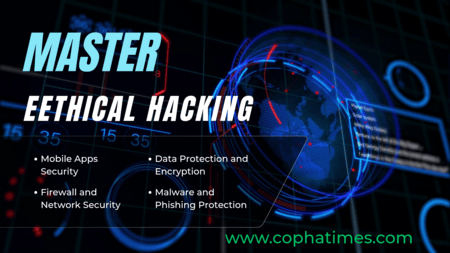
Table of Contents
Introduction
Unleash your Cyber Guardian defensive your digital business in digital world. A master of Ethical Hacking is an advanced cybersecurity professional with specialized expertise in identifying, analyzing, and mitigating vulnerabilities in computer systems, networks, and applications.
Unlike malicious hackers, ethical hackers, often referred to as “white hat” hackers, use their skills legally and with permission to test and improve the security of organizations.
To achieve mastery, these professionals typically hold advanced certifications like Certified Ethical Hacker (CEH), Offensive Security Certified Professional (OSCP), or GIAC Penetration Tester (GPEN), combined with extensive practical experience.
They possess deep knowledge of penetration testing methodologies, exploit development, social engineering, and secure coding practices.
Their role involves simulating real-world cyberattacks, such as phishing, SQL injection, or privilege escalation, to uncover weaknesses before malicious actors can exploit them.
A master ethical hacker is also adept at using tools like Metasploit, Burp Suite, and Nmap, while staying updated on emerging threats and zero-day vulnerabilities.
Beyond technical prowess, a Master of Ethical Hacking demonstrates strong analytical thinking, problem-solving, and communication skills to translate complex findings into actionable recommendations for organizations.
They often work as penetration testers, security consultants, or red team leaders, collaborating with blue teams to enhance defensive strategies.
Their expertise extends to advanced areas like reverse engineering, cryptography, and cloud security, enabling them to secure diverse environments, from on-premises systems to modern cloud infrastructures.
Ethical hackers at this level also adhere to strict ethical standards, ensuring confidentiality and compliance with legal frameworks like GDPR or HIPAA.
By proactively identifying risks and advising on remediation, they play a critical role in safeguarding sensitive data and maintaining organizational trust in an increasingly threat-prone digital landscape.
Master Ethical Hacking to Defend the Digital World In a world
where unleash your cyber guardian the threats lurk around every digital corner, the need for skilled protectors has never been greater.
Imagine becoming a Cyber Guardian a master of ethical hacking, wielding the power to safeguard organizations, individuals, and even entire nations from malicious cyberattacks.
By mastering ethical hacking, you can defend the digital world, turning vulnerabilities into impenetrable fortresses.
This blog dives deep into what ethical hacking is, why it’s a game-changer in cybersecurity, and how you can unleash your potential to become a digital defender.
What Is Ethical Hacking?
Ethical hacking, often called “white hat hacking,” is the art and science of probing systems, networks, and applications to uncover security weaknesses with permission.
Unlike malicious hackers who exploit vulnerabilities for personal gain, ethical hackers use their skills to strengthen defenses, ensuring sensitive data and critical infrastructure remain secure.
Think of ethical hackers as the superheroes of the digital realm.
They simulate real-world cyberattacks, identify cracks in the system, and provide actionable solutions to fortify security.
From testing corporate networks to securing e-commerce platforms, ethical hackers are the first line of defense against a growing tide of cybercrime.
Why It Matters
Rising Cyber Threats: In 2024 alone, ransomware attacks surged by 73%, costing businesses billions, while phishing scams targeted millions of users daily. Data Protection: With data breaches exposing sensitive information (e.g., 2.6 billion personal records in 2024), ethical hacking ensures vulnerabilities are patched before criminals strike. Compliance: Regulations like GDPR and PCI-DSS mandate robust security, making ethical hacking essential for legal and operational compliance.
The Power of Ethical Hacking: Why It’s Your Superpower
Ethical hacking isn’t just a job it’s a calling to protect the digital world. Here’s why mastering this skill unleashes your inner Cyber Guardian:
1. Defend Against Evolving Threats
Cybercriminals are relentless, using sophisticated techniques like AI-driven attacks and zero-day exploits.
Ethical hackers stay one step ahead by: Simulating Attacks: Using tools like Metasploit and Burp Suite to mimic real-world hacks.
Identifying Weaknesses: From misconfigured servers to unpatched software, ethical hackers find and fix vulnerabilities.
Predicting Threats: By thinking like a hacker, they anticipate new attack vectors.
2. Empower Organizations and Individuals
By securing systems, ethical hackers protect businesses from financial ruin and individuals from identity theft. For example: A single ethical hack can save a company millions by preventing a data breach. Bug bounty programs, like those run by Google and Microsoft, reward ethical hackers for finding flaws, fostering a safer internet.
3. Shape the Future of Cybersecurity
As technology advances think IoT, 5G, and cloud computing so do the risks. Ethical hackers are at the forefront, ensuring emerging technologies are secure. Your expertise could protect smart cities, autonomous vehicles, or even healthcare systems from catastrophic breaches.
How to Master Ethical Hacking: Your Journey to Becoming a Cyber Guardian
Ready to unleash your Cyber Guardian? Here’s a roadmap to master ethical hacking and defend the digital world:
Step 1: Build a Strong Foundation
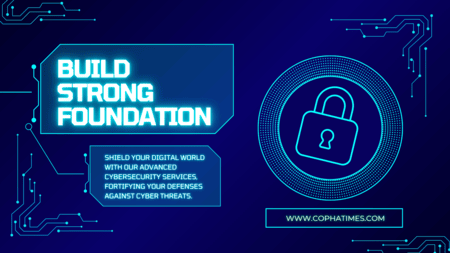
Learn the Basics: Understand networking (TCP/IP, DNS), operating systems (Linux, Windows), and programming (Python, C). Study Cybersecurity Concepts: Grasp encryption, authentication, and firewall mechanics. Resources: Platforms like TryHackMe and Hack The Box offer beginner-friendly labs.
Step 2: Master Ethical Hacking Techniques
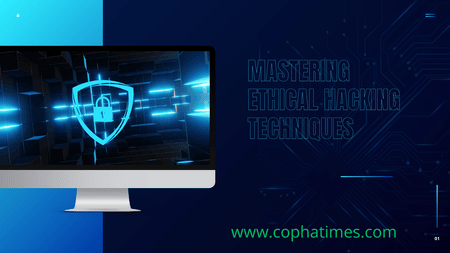
Ethical hackers use a variety of methods to test systems. Key techniques include:
Penetration Testing: Simulating attacks to find vulnerabilities in networks, apps, or devices.
Social Engineering: Testing human weaknesses through phishing or pretexting.
Web Application Hacking: Exploiting flaws like SQL injection or cross-site scripting (XSS). Tools:
Get hands-on with Nmap (network scanning), Wireshark (packet analysis), and Kali Linux (a hacker’s toolkit).
Step 3: Earn Certifications Certifications
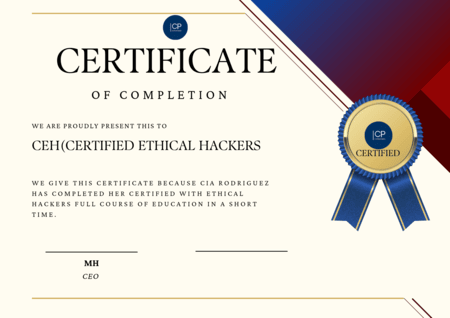
validate your skills and open doors to high-demand careers. Top certifications include: Certified Ethical Hacker (CEH): Covers core hacking techniques and methodologies.
Offensive Security Certified Professional (OSCP): Hands-on, real-world penetration testing. CompTIA PenTest+: Focuses on practical testing and reporting.
Step 4: Gain Real-World Experience
Bug Bounty Programs: Join platforms like HackerOne or Bugcrowd to hunt vulnerabilities and earn rewards.
CTF Challenges
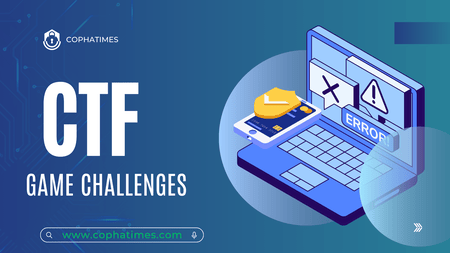
Participate in Capture The Flag competitions to sharpen your skills. Internships: Work with cybersecurity firms to learn from seasoned professionals.
Step 5: Stay Ahead of the Curve
Cybersecurity evolves rapidly. Stay updated by: Following blogs like Krebs on Security or The Hacker News. Attending conferences like DEF CON or Black Hat.
Experimenting with new tools and techniques in safe, legal environments.
The Impact of Ethical Hacking: Defending the Digital World
By mastering ethical hacking, you’re not just protecting systems you’re shaping a safer future.
Here’s how Cyber Guardians make a difference:
For Businesses
Prevent Financial Losses: A single breach can cost millions.
Ethical hackers save companies by identifying risks early. Build Trust: Secure systems reassure customers, boosting brand loyalty.
Ensure Compliance: Ethical hacking aligns with regulations, avoiding hefty fines.
For Individuals
Protect Privacy: Ethical hackers secure personal data, preventing identity theft or fraud. Empower Communities: By securing public services like healthcare or voting systems, they safeguard society.
For the World
Combat Cybercrime: Ethical hackers disrupt ransomware gangs, phishing rings, and state-sponsored attacks.
Innovate Securely: They enable safe adoption of AI, IoT, and other transformative technologies.
Challenges and Ethics: The Cyber Guardian’s Code
Being a Cyber Guardian comes with responsibilities.
Ethical hackers must: Stay Legal: Always obtain permission before testing systems. Respect Privacy: Handle sensitive data with care to avoid misuse.
Act with Integrity: Report findings honestly and avoid exploiting vulnerabilities for personal gain.
Challenges include: Keeping Up: Cyber threats evolve daily, requiring constant learning.
Ethical Dilemmas: Balancing security with privacy or legal constraints can be tricky. Burnout: High-pressure roles demand resilience and mental health care.
Why Now Is the Time to Unleash Your Cyber Guardian
As worldwide today the demands For ethical hackers are more growth with jobs opportunities according to industry reports Cybersecurity job openings grew by 43% in 2024, with ethical hacking roles leading the charge.
Salaries for certified ethical hackers average $100,000-$150,000 annually, with top earners exceeding $200,000.
By 2025, 3.5 million cybersecurity jobs will remain unfilled, creating endless opportunities. With cybercrime costing the global economy $8 trillion in 2023 and projected to hit $10 trillion by 2025, the world needs Cyber Guardians more than ever.
By mastering ethical hacking, you can defend the digital world while building a rewarding, future-proof career.
For more ready to learn about ethical hacking mastering Ready to unleash your Cyber Guardian?
Here’s how to begin: Enroll in a Course: Start with free resources on Cybrary or Coursera, or invest in a CEH bootcamp.
Join a Community
Connect with ethical hackers on platforms like Reddit’s r/NetSec or Discord servers.
Practice Safely: Set up a home lab with VirtualBox and Kali Linux to experiment legally. Hunt Bugs: Sign up for a bug bounty program to test your skills and earn rewards.
The digital world is under siege, but you have the power to defend it.
Master ethical hacking, embrace your role as a Cyber Guardian, and make a lasting impact. The future is in your hands unleash it today! Want to dive deeper into specific tools, certifications, or career paths in ethical hacking?
Let me know, and I’ll tailor the next steps for you! Explore bug bounty programs You can start to learn cybersecurity laws Make it more engaging
Frequently Ask Questions
1. Q. What is ethical hacking, and how does it help protect the digital world?
Answer:Ethical hacking involves authorized professionals testing systems, networks, or applications to identify vulnerabilities before malicious hackers can exploit them.
By simulating cyberattacks, ethical hackers help organizations strengthen their defenses, safeguard sensitive data, and maintain trust in digital ecosystems.
2. Q.What are the key skills needed to become a master ethical hacker?
Answer: To excel in ethical hacking, you need expertise in areas like network security, programming (e.g., Python, C++), penetration testing, cryptography, and knowledge of operating systems (Linux, Windows).
Soft skills like problem-solving, critical thinking, and staying updated on evolving cyber threats are also essential.
3. Q.How can ethical hacking prevent cyber threats in a connected world?
Answer: Ethical hacking proactively identifies weaknesses in systems, such as unpatched software or misconfigured servers, allowing organizations to fix them before attacks occur.
Techniques like vulnerability assessments and red teaming simulate real-world threats, ensuring robust protection against data breaches and cyberattacks.
4. Q. What tools do ethical hackers use to defend digital systems?
Answer: Ethical hackers commonly use tools like Nmap for network scanning, Metasploit for penetration testing.
Wireshark for packet analysis, Burp Suite for web application testing.
Kali Linux as a specialized operating system packed with security tools to identify and mitigate vulnerabilities.
5. q. Is ethical hacking legal, and how can someone start a career in it?
Answer: Yes, ethical hacking is legal when performed with explicit permission from the system owner.
To start a career, pursue certifications like CEH (Certified Ethical Hacker), OSCP, or CompTIA Security+, gain hands-on experience through bug bounty programs or CTF (Capture The Flag) challenges, and stay informed about cybersecurity trends.
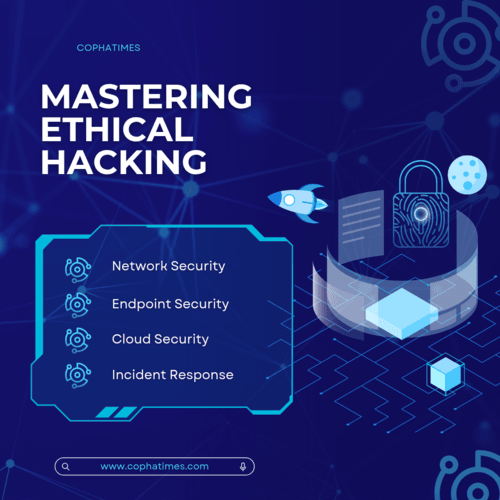
Thanks for breaking this down so simply!
Thanks for your suggestions
Your content never disappoints. Keep it up!
Thank you for your appreciate me
Short but packed with value. Love it!
Thanks for your suggestions